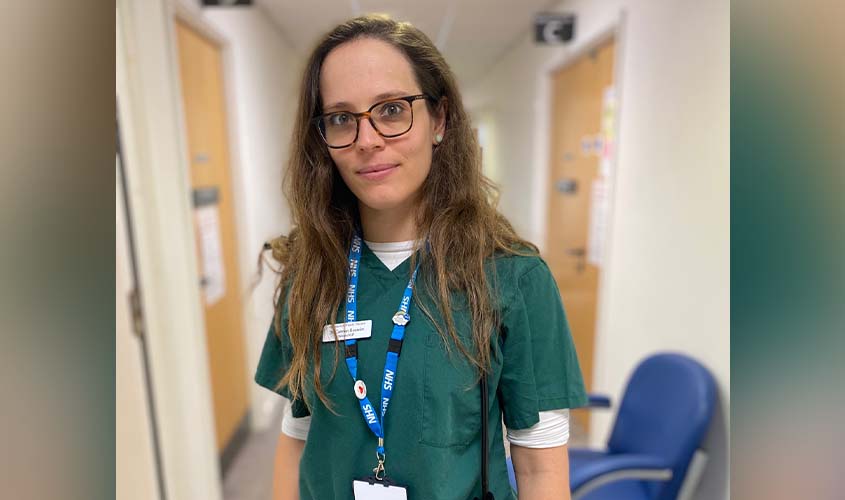For Carmen Roessler, MD ’14, there is great joy in the company she keeps. The native South African splits time between three sites within England’s National Health Service, including a rehabilitation unit for predominantly older patients who require physical and occupational therapy. It’s her job to develop their functionality and, ideally, their independence.
Along the way, she appreciates getting to hear about the path they took in life, and applying their healthcare goals to the treatment plan she gives them.
“They often have different insights and some amazing stories,” she said.
Dr. Roessler recently shared her story, one that began on a sugar cane farm outside of Durban and has taken her around the world.
What do you enjoy most about working with an older population?
I enjoy interacting with people who have had a lot more time in this world than I have. And along with that, people in this part of their lives can be quite lonely and frustrated. I’m glad to get a feel for who they really are and what’s important to them. There are nuances to caring for them as their priorities may be different than someone who is middle-aged.
What is one challenge facing physicians in this field?
One challenge is that there’s not a lot of evidence out there that’s based on putting older people in studies. If you think about most of the medicines that we take, they’re based on younger people having been in the clinical trials. I think there are limited insights into how medications are processed by older people. People at different stages of their life are going to respond to medications differently. This is an area of medicine where there needs to be more research, and we also need more people to be trained to work in this sphere of medicine.
You completed your GP training in the heart of the COVID-19 pandemic. How do you believe it’s changed medicine?
COVID is still a major concern. It’s an ongoing threat to human life and human quality of life. One thing it has done is accelerate some of the technological advances that were probably already coming our way. There are benefits, but seeing someone in person can sometimes give you clues that you aren’t privy to if you’re having a telephone consultation. I think primary care is trying to balance and negotiate that very carefully.
When did pursuing an MD come on your radar?
I grew up on a sugar cane farm in South Africa. We had a bit of timber and cattle as well. I think the earliest roots of my interest in medicine were in nature or biology, and was probably inspired by growing up with a lot of contact with the outdoors. And then later on, I had a great aunt who was ill with cancer, and I found it rewarding to be able to offer her emotional support.
You spent your first year in the SGU/NU program in the UK. What was that like?
My experience in the Global Scholars program in the UK was brilliant. We had a smaller class size and we were a really tightly knit group. We built this sort of mini community that studied together and, when exams were over, we’d celebrate together. It was a fantastic bond. Together it was a time of growth and learning across multiple spheres.
In what ways did attending SGU help shape you as a physician?
Going to SGU exposed me to different cultures, different ways of thinking, and different ways of communicating. I think that it made me richer on a personal level; not only that but it has also made me a better communicator and hopefully, therefore, a more understanding doctor.
– Brett Mauser
Related Reading
Forbes: More med school candidates turning to the Caribbean
Residency success 101: How to ace your application, interview, and first day on the job
On the blog: What does a primary care physician do?
The post South African grad thrives treating elderly in UK appeared first on St. George’s University.

Leave A Comment